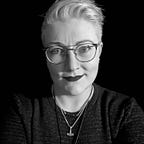The structural ableism of public health research
I was looking through some PhD studentship listings this morning, when one in particular stopped me in my tracks. It offers an interdisciplinary programme in public health research and decision-making, is based in the UK, and is open to international students. But what caught my eye was this excerpt, near the bottom of the page:
There’s nothing quite like looking at a position you’d like to apply for and seeing yourself described as a burden.
And yes, I am well aware “burden of illness” is a technical term used in the public health and health economics fields. That’s exactly the problem. When public health decision-making is predicated upon the construction of illness-as-burden, and health services are designed with the goal of minimising that burden, chronic patients will necessarily suffer.
To construct chronically ill (ergo, disabled) people as a burden is inherently eugenicist. And while the burden may be constructed at a macro level, the effect of this construct trickles down to individual patients. Illness-disability becomes something to be prevented, rather than something to be accommodated. Meanwhile, in the context of the clinic, where becoming-real is accomplished through the act of visualising, naming and recording, practitioners are imbued with the power to very literally make someone ill — or not. And if the goal of health care has been defined as preventing the burden of illness, clinical and laboratory practitioners are effectively charged with a duty not to name it, since that brings it into being. This duty is particularly significant if, once called into being, the illness cannot then be destroyed through other practices of medicine.
This is why patients with illnesses that can be rendered invisible meet with such resistance when asking for diagnoses. It is why it takes an average of 5 years and 5 different doctors for autoimmune patients to receive a diagnosis.
It is why when I show doctors pictures like these, their response is, “Huh. That’s really weird.” And that’s it.
Because to pursue a name for what is happening in my body is literally to make me ill. Within the ideological framework of their field, it is better for doctors to allow my bleeding to remain some weird idiopathic quirk of my body. This is significant because it hints at the reason why the absolute exclusion of patient voices is a crucial component in the construction of medical knowledge.
The unfortunate thing about this listing (besides, you know, how it perpetuates the oppression of my people) is that I’d actually be really interested in the course itself. But I cannot bring myself to participate in a rhetorical framework that casts my community as a burden. For one thing, I’ve tried before to do that. I’ve submitted proposals that capitulated to the need for health service design to be economically justified. And it was soul-sucking. To have to cast yourself and your chosen family as burdens to be prevented is devastating.
My other reason is that, within the context of democidal health and social care policy decisions being made by governments globally, I cannot bring myself to participate in the ideological scaffolding that enables these policy decisions. Critical engagement with academic ideology feels much more urgent now than it did two years ago.
But. The grants for health services research are uniformly predicated on the construction of illness as burden. Because of course this is how grant proposals get accepted. And so this is precisely how critical disability perspectives remain structurally excluded from health services research, why disabled voices are absent from health policy design, and how public health research perpetuates the ableism we encounter so routinely at a clinical level, which impacts on the care that we, as chronic patients, receive.
